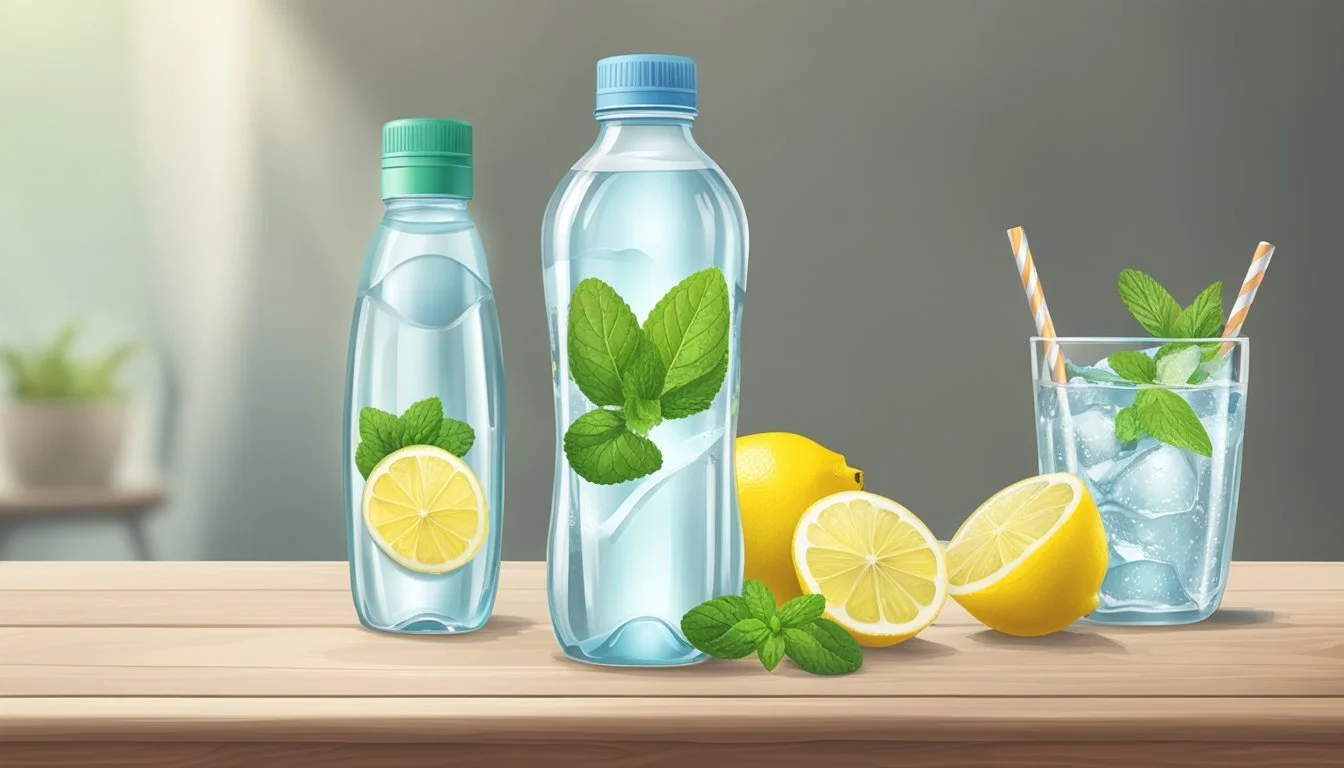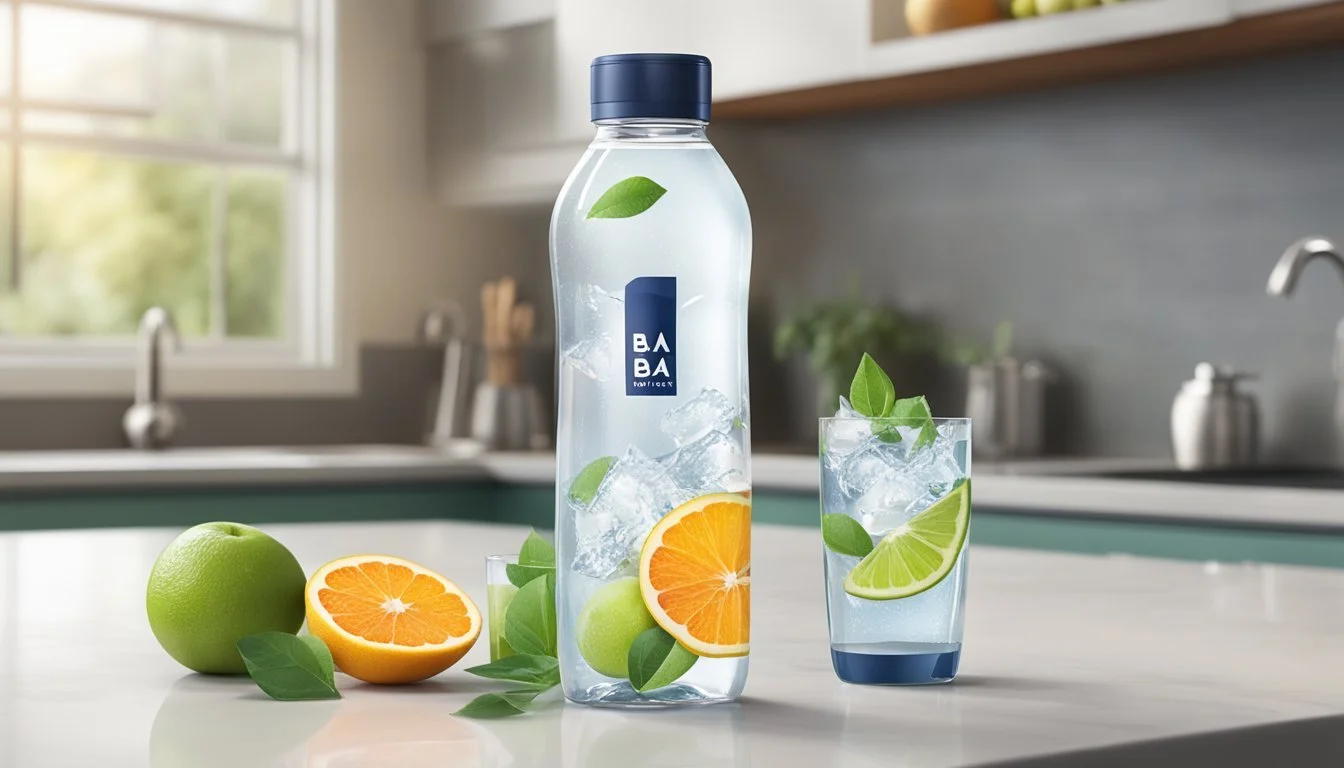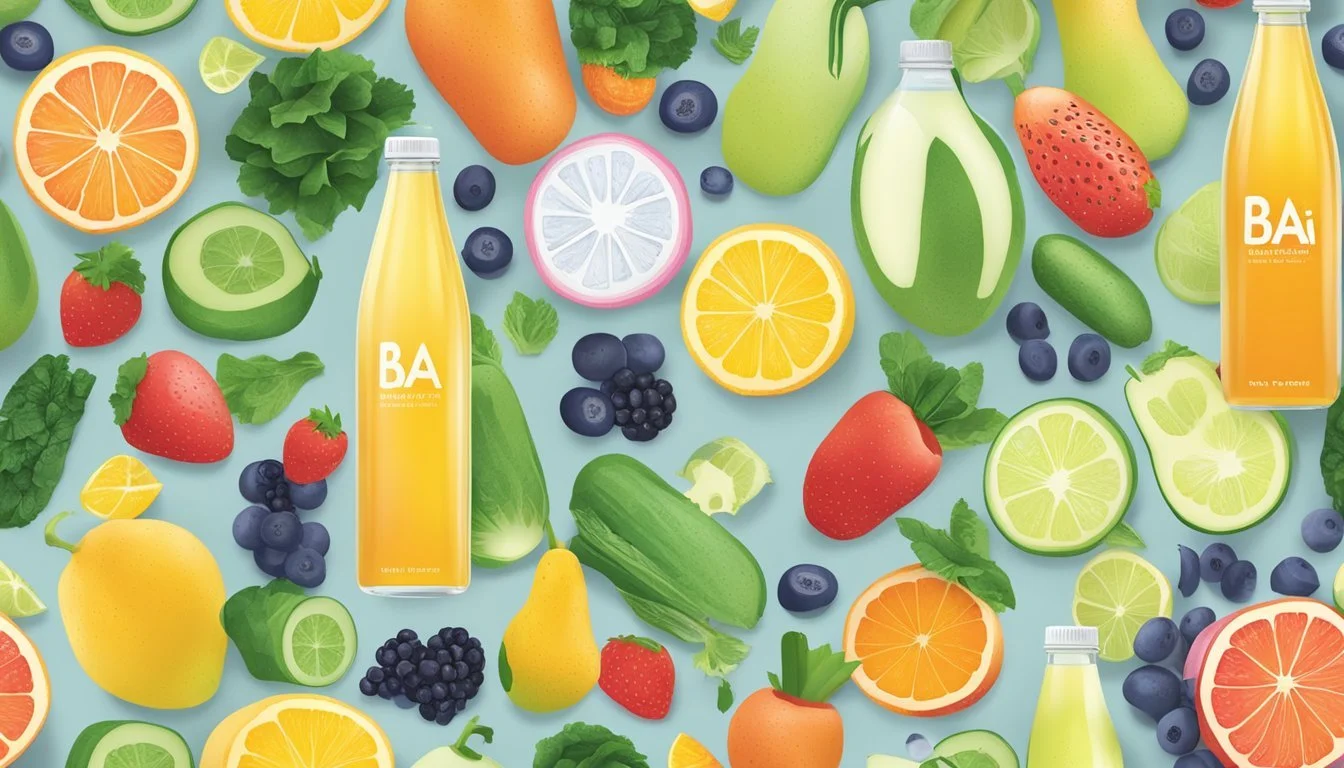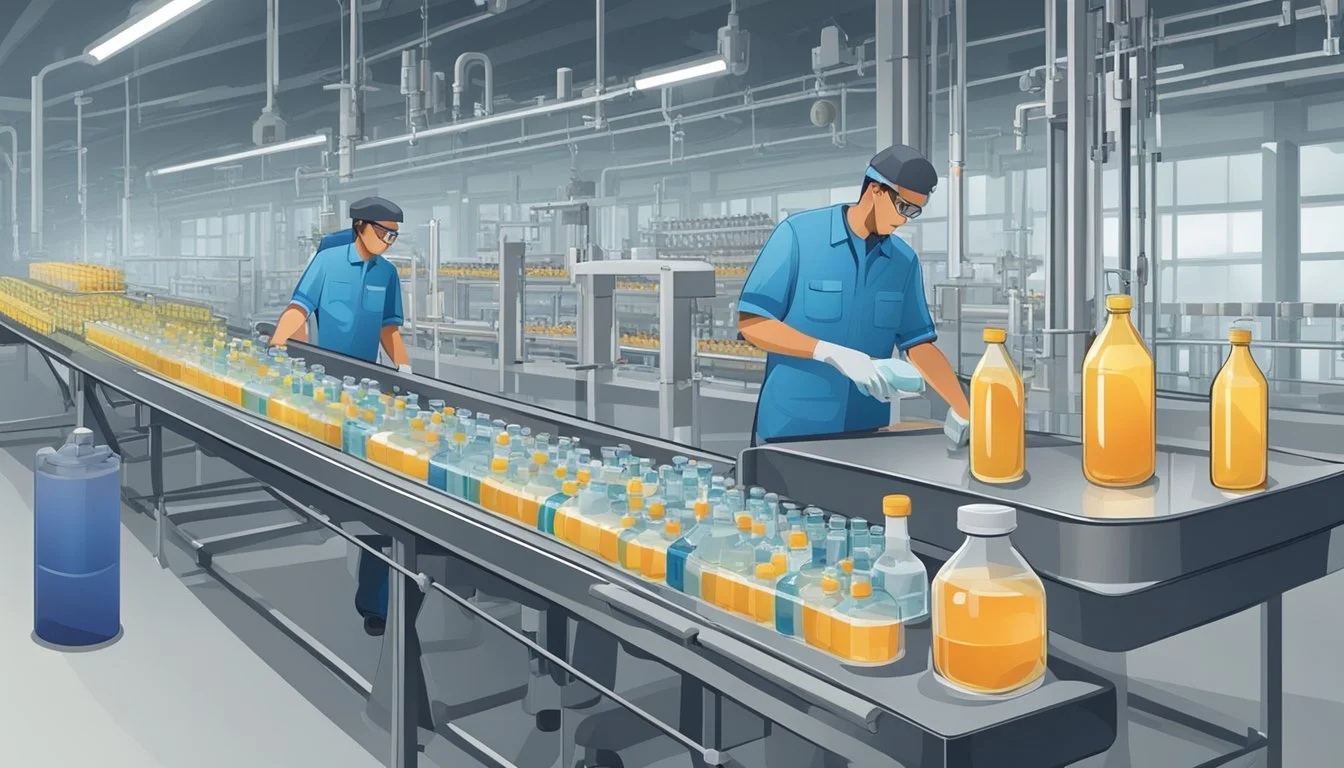Is Bai the Best Bottled Water?
A Refreshing and Antioxidant-Rich Beverage Choice
Bai bottled water offers a unique twist on flavored beverages. This antioxidant-infused drink provides more than just hydration. Each Bai beverage contains electrolytes, vitamin C, and exotic fruit flavors, all with only 10 calories per serving.
Bai distinguishes itself from typical bottled waters through its innovative approach. The company infuses its drinks with antioxidants and sweetens them naturally with stevia leaf extract. This combination creates a flavorful yet low-calorie option for those seeking an alternative to plain water or sugary sodas.
The Bai product line includes a variety of fruit-inspired flavors like Brasilia Blueberry, Kula Watermelon, and Zambia Bing Cherry. These options cater to different taste preferences while maintaining the brand's commitment to providing a refreshing, health-conscious beverage choice.
Bai Brand Overview
Bai is a beverage company known for its antioxidant-infused WonderWater. The brand focuses on creating flavorful, low-calorie drinks with functional benefits.
History and Development
Bai was founded in 2009 by Ben Weiss in his Princeton basement. Weiss was inspired by coffee fruit, a typically discarded byproduct of coffee production rich in antioxidants.
The company's name, "Bai," means "pure" in Mandarin Chinese. Initially, Bai offered coffee fruit-infused drinks. Over time, the brand expanded its product line to include various flavored water beverages.
In 2016, Dr Pepper Snapple Group (now Keurig Dr Pepper) acquired Bai Brands for $1.7 billion. This acquisition helped propel Bai's growth and distribution capabilities.
Brand Philosophy and Mission
Bai's core philosophy centers on delivering "flavor with benefits." The brand aims to provide consumers with tasty, healthier alternatives to traditional sugary drinks.
Bai's mission is to create innovative beverages that support overall wellness without sacrificing taste. Their products are designed to be low in calories and sugar while offering functional benefits like antioxidants and electrolytes.
The company emphasizes sustainability in its packaging. Bai has transitioned to using 100% recycled plastic bottles for its products, aligning with eco-conscious consumer values.
Bai strives to appeal to health-conscious consumers seeking flavorful hydration options. The brand's WonderWater concept encapsulates their goal of transforming ordinary water into an extraordinary beverage experience.
Bai Bottled Water Product Line
Bai offers a diverse range of flavored water beverages with unique taste profiles and health-conscious formulations. The brand focuses on providing antioxidant-infused drinks in various packaging options.
Varieties of Bai Water Flavors
Bai water comes in an array of enticing flavors. Popular options include raspberry lemon lime, which balances tart and sweet notes. Kula watermelon offers a refreshing summertime taste.
Zambia bing cherry provides a bold, fruit-forward option. Other flavors in the lineup feature tropical fruits, berries, and citrus blends. Bai infuses their waters with coffee fruit and white tea extracts for antioxidant benefits.
Each flavor contains only 1 gram of sugar and 10 calories per bottle. The drinks are free from artificial sweeteners and gluten. Bai uses natural flavors to create their taste profiles.
Packaging and Bottle Sizes
Bai bottles are now made from 100% recycled plastic, aligning with sustainability efforts. This change applies across their product line.
The brand offers several bottle sizes to suit different consumer needs:
18 fl oz (532 mL)
11.5 fl oz (340 mL)
1 L (33.8 fl oz)
Bai also produces canned versions of some flavors. Multi-packs are available for retail and bulk purchase. The bottles feature clear labeling with flavor names and nutritional information prominently displayed.
Nutritional Profile
Bai bottled water offers a unique nutritional profile with low calories and added antioxidants. It provides hydration along with several beneficial nutrients and electrolytes.
Caloric Content and Serving Size
Bai water contains minimal calories, typically around 5-10 calories per serving. The standard serving size is 16 fluid ounces (473 mL). This low calorie count makes it an appealing option for those watching their caloric intake.
The drink uses erythritol and stevia leaf extract as sweeteners. These natural alternatives help keep the calorie count low while still providing a pleasant taste.
Vitamins and Minerals
Bai water is infused with antioxidants, primarily from tea extract and coffee fruit extract. These ingredients contribute to its antioxidant properties.
Vitamin C (ascorbic acid) is added to enhance the nutritional value. The exact amount varies by flavor but typically provides a portion of the recommended daily intake.
Electrolytes are present in Bai water, supporting hydration. While not as concentrated as in sports drinks, they can still contribute to maintaining electrolyte balance.
Some varieties may contain trace amounts of selenium and zinc, though these are not primary features of the drink. The specific mineral content can vary between flavors and product lines.
Ingredients Analysis
Bai bottled water contains a unique blend of natural and artificial components. The ingredients list reveals a mix of flavoring agents, sweeteners, and antioxidant sources that contribute to its distinct taste profile and health claims.
Natural vs Artificial Additives
Bai water incorporates several natural additives. Coffee fruit extract and tea extract provide antioxidants, potentially offering health benefits. Natural flavors enhance taste without artificial chemicals. The product also uses vegetable juice concentrate as a colorant, a healthier alternative to artificial dyes.
Selenium, a naturally occurring mineral, is added for its antioxidant properties. This element may support heart health and boost the immune system. Bai also adds alkaline minerals to raise the pH level of their water to 7.5 or higher.
Sweeteners in Bai Water
Bai water uses a combination of sweeteners to achieve its low-calorie profile. Erythritol, a sugar alcohol, serves as the primary sweetener. It provides sweetness with minimal calories and doesn't affect blood sugar levels significantly.
Stevia leaf extract, a natural zero-calorie sweetener, complements erythritol. This combination allows Bai to maintain a sweet taste while keeping sugar content to just 1 gram per bottle. The product contains no artificial sweeteners, appealing to consumers seeking natural alternatives.
Notably, Bai water contains only 10 calories per bottle, making it an attractive option for those monitoring calorie intake. The absence of added sugar sets it apart from many flavored beverages on the market.
Health and Dietary Benefits
Bai water offers several potential health advantages due to its unique formulation. It contains beneficial compounds and supports hydration without excess calories or artificial additives.
Antioxidant Properties
Bai water incorporates antioxidants from coffee fruit extract and tea extract. These compounds may help neutralize harmful free radicals in the body. Antioxidants play a role in supporting overall health and potentially reducing cellular damage.
The inclusion of vitamin C, an antioxidant, provides 20% of the daily recommended value per serving. This nutrient contributes to immune system function and collagen production.
Bai's antioxidant content sets it apart from plain water, offering potential health benefits beyond simple hydration.
Hydration and Electrolytes
Proper hydration is crucial for numerous bodily functions. Bai water aids in meeting daily fluid needs while providing a flavored alternative to plain water.
The beverage contains electrolytes, which help maintain fluid balance in the body. This feature may be particularly beneficial during exercise or in hot weather when electrolyte loss occurs through sweat.
With only 10 calories per serving, Bai water can be a suitable option for those monitoring calorie intake. It contains no artificial sweeteners and is gluten-free, making it accessible to individuals with certain dietary restrictions.
Consumer Experience
Bai bottled water has garnered significant attention from consumers, with taste and popularity playing key roles in its market position.
Taste and Flavor Ratings
Bai's flavored water options have received positive feedback for their taste profiles. Many consumers appreciate the brand's low-calorie count and antioxidant-infused formulations. On Amazon, Bai has achieved an impressive 4.4 out of 5 stars rating, reflecting strong customer satisfaction.
The brand's unique flavors, derived from coffee fruit extract and tea extract, have contributed to its appeal. Consumers often describe Bai's taste as refreshing and enjoyable, without the artificial sweetness found in some competing products.
Consumer Feedback and Popularity
Bai has established itself as a best seller in the bottled water category on major retail platforms. Customer reviews frequently highlight the brand's great taste and health-conscious formulation as key selling points.
The absence of artificial sweeteners and added sugars in Bai products has resonated well with health-conscious consumers. Many appreciate the low sugar content of just 1 gram per bottle and the mere 10 calories per serving.
Bai's gluten-free status and antioxidant content have further boosted its popularity among consumers seeking healthier beverage options. The brand's visibility in stores and its attractive packaging have also contributed to its growing consumer base.
Comparative Market Analysis
Bai bottled water occupies a unique position in the competitive beverage market. Its fruit-infused, antioxidant-rich offerings set it apart from traditional bottled water brands.
Cost vs Competitor Brands
Bai typically commands a premium price compared to plain bottled water. A 6-pack of Bai flavored water often retails between $9-$12, depending on the retailer and location. This pricing reflects its positioning as a functional beverage rather than just hydration.
In contrast, standard bottled water brands like Aquafina or Dasani usually sell for $3-$5 per 6-pack. Premium water brands such as FIJI or Evian fall in a similar price range to Bai, around $8-$10 for a 6-pack.
Bai's higher price point is justified by its added antioxidants and natural flavors. The brand emphasizes its health benefits to attract health-conscious consumers willing to pay more for perceived value.
Product Availability and Purchasing Options
Bai products are widely available across the United States. Consumers can find Bai bottled water in:
Major grocery chains
Convenience stores
Drug stores
Online retailers
Many retailers offer bulk purchasing options, such as 12-packs or 24-packs, which can provide cost savings for regular consumers. Amazon and other e-commerce platforms frequently feature subscribe-and-save options for Bai products.
Bai's distribution network ensures consistent availability in most urban and suburban areas. However, rural locations may have more limited access to the full range of Bai flavors and varieties.
The brand's strong online presence allows for direct-to-consumer sales, complementing its brick-and-mortar retail strategy. This multi-channel approach gives Bai a competitive edge in product accessibility.
Environmental and Social Responsibility
Bai has taken steps to improve the sustainability of its packaging and implement corporate social initiatives. The company aims to reduce its environmental impact while giving back to communities.
Sustainability of Packaging
Bai now uses 100% recycled plastic for all its bottles. This shift to recycled materials helps decrease the amount of new plastic produced. The company's bottles are also recyclable, allowing for a closed-loop system.
Bai has invested in lighter-weight bottle designs. These require less plastic and reduce transportation emissions. The labels are designed for easy removal to improve recyclability.
Some Bai products come in aluminum cans as an alternative to plastic. Aluminum has higher recycling rates and can be recycled indefinitely without loss of quality.
Corporate Social Initiatives
Bai partners with environmental organizations to support clean water projects. These efforts help provide safe drinking water to communities in need.
The company sponsors beach and waterway cleanups to remove plastic waste. Employees participate in volunteer events to collect litter from natural areas.
Bai has implemented water conservation measures in its production facilities. This includes water recycling systems and more efficient filtration processes for its purified water products.
Educational programs teach consumers about proper recycling of beverage containers. Bai provides recycling information on its packaging and website to encourage responsible disposal.
Quality and Safety Standards
Bai adheres to strict quality control measures and safety standards for its bottled water products. The company prioritizes consumer health through rigorous testing and compliance with regulations.
Water Source and Filtration Process
Bai sources its water from carefully selected natural springs and municipal water supplies. The water undergoes a multi-step filtration process to remove impurities and ensure purity. This process typically includes:
Reverse osmosis
UV light treatment
Ozonation
These methods effectively eliminate contaminants, microorganisms, and unwanted particles. Bai's filtration system also helps balance the water's pH levels and mineral content.
The company regularly tests its water sources for potential contaminants. This includes checking for heavy metals, pesticides, and other harmful substances.
Compliance with Health Regulations
Bai follows FDA regulations for bottled water quality and safety. The company conducts regular testing to meet or exceed these standards.
Key aspects of Bai's compliance include:
Monitoring of chemical compounds
Microbiological testing
Quality control checks throughout production
Bai's bottled water products are subject to FDA limits on substances like lead, arsenic, and mercury. The company also tests for synthetic chemicals such as PFAS.
Bai provides water quality reports to consumers, detailing the mineral content and any added ingredients. These may include electrolytes like potassium bicarbonate and magnesium sulfate for enhanced hydration benefits.









